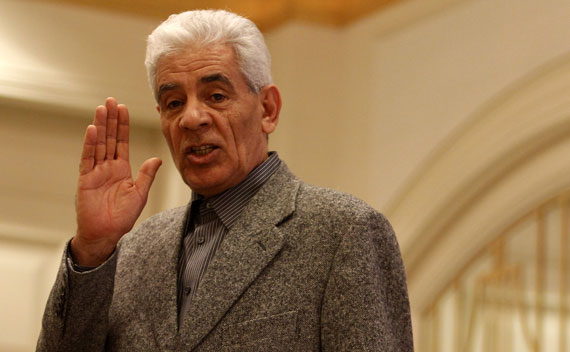The Defection of Musa Kusa
More on:

On March 30, Libyan Foreign Minister Musa Kusa apparently defected. The UK Foreign Office statement on Musa Kusa is as follows:
"We can confirm that Musa Kusa arrived at Farnborough Airport on 30 March from Tunisia. He travelled here under his own free will. He has told us that he is resigning his post. We are discussing this with him and we will release further detail in due course.
“Musa Kusa is one of the most senior figures in Qadhafi’s government and his role was to represent the regime internationally--something that he is no longer willing to do.
“We encourage those around Qadhafi to abandon him and embrace a better future for Libya that allows political transition and real reform that meets the aspirations of the Libyan people."
Kusa was for fifteen years Libya’s spy master. I met him in London in 2004 as part of the negotiations over Qaddafi’s handover to the United States of his WMD programs. He was a handsome, well-dressed man who spoke perfect English, acquired as an undergraduate at Michigan State (Class of 1978). He was an easy and relaxed conversationalist—until one recalled that as Qaddafi’s intelligence chief, Kusa had plenty of blood to answer for. I wonder how the British will now treat the man probably responsible for the Lockerbie bombing, the act of terrorism that brought down Pan Am 103 in 1988. Libya has long claimed that Iran was responsible for this act of terror, and if Kusa can prove that he’ll be worth listening to.
His defection is a serious blow to Qaddafi. This is the first loss of such a close comrade, and Kusa may well have a great deal of useful information about other potential defectors. In fact his ability to defect, to secure a plane and fly off to England under Qaddafi’s nose, suggests that the regime is falling apart despite its battlefield victories in the last two days.
What to do with Kusa once the Qaddafi regime falls will be a difficult question for lawyers on both sides of the Atlantic, and he can expect endless law suits. But his departure tells us that the people closest to Qaddafi expect they now know how this story ends, and do not wish to be with the dictator when that end comes.
More on:
 Online Store
Online Store